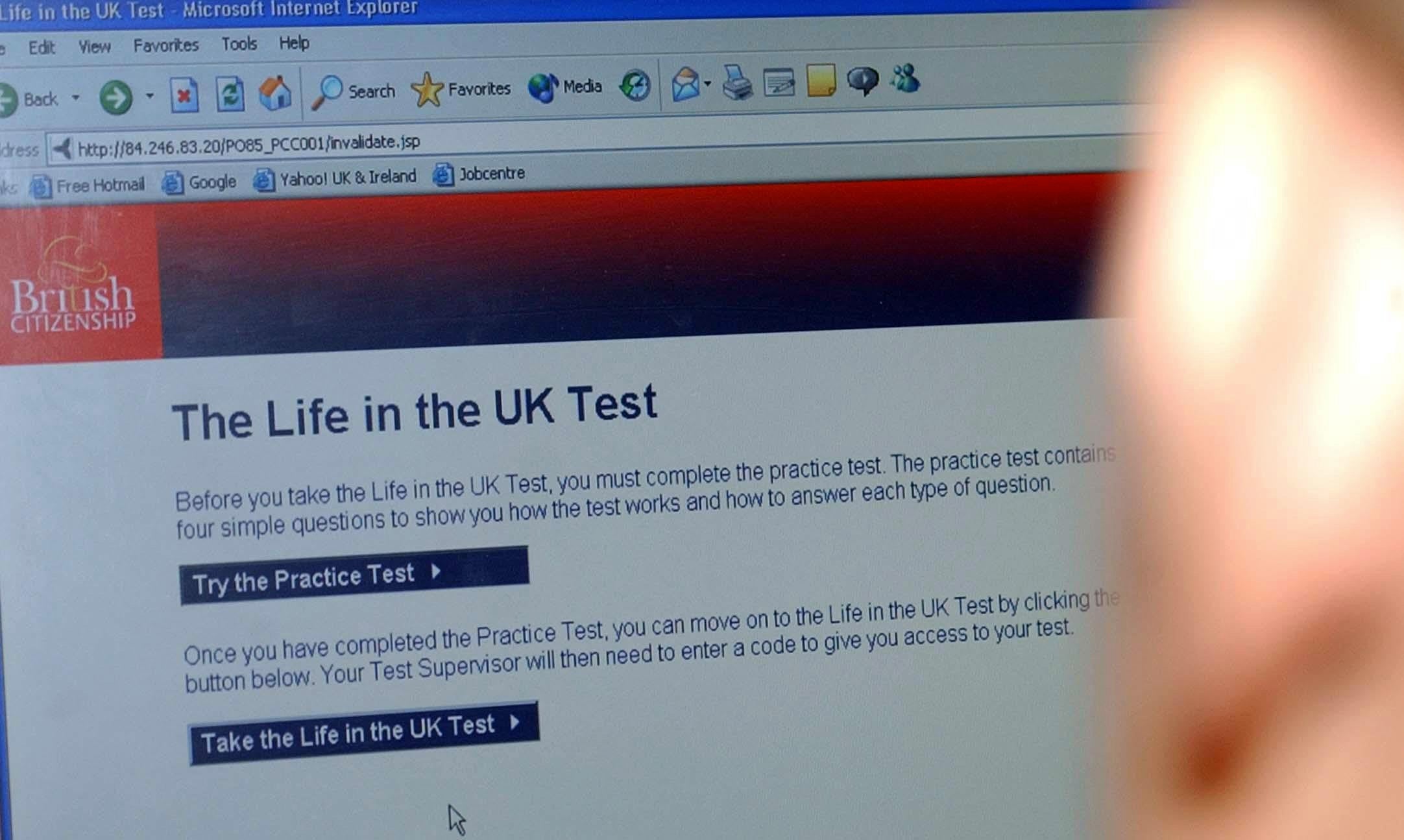Can you pass the British Citizenship test? Twenty four questions given to migrants
Applicants are required to get 75 percent of the questions right to pass
Your support helps us to tell the story
From reproductive rights to climate change to Big Tech, The Independent is on the ground when the story is developing. Whether it's investigating the financials of Elon Musk's pro-Trump PAC or producing our latest documentary, 'The A Word', which shines a light on the American women fighting for reproductive rights, we know how important it is to parse out the facts from the messaging.
At such a critical moment in US history, we need reporters on the ground. Your donation allows us to keep sending journalists to speak to both sides of the story.
The Independent is trusted by Americans across the entire political spectrum. And unlike many other quality news outlets, we choose not to lock Americans out of our reporting and analysis with paywalls. We believe quality journalism should be available to everyone, paid for by those who can afford it.
Your support makes all the difference.The “Life in the UK” test is a key part of the application process to become a British citizen or settle in the country.
Tests were introduced in 2005 for migrants seeing citizenship and in 2007 for people applying for settlement, and are intended to prove applicants have ‘sufficient knowledge’ of British life.
But it has faced criticism for including questions that many British-born citizens would not know.
Last week, The Independent revealed that one migrant took the test a record 118 times at the cost of £50 each time.
Applicants are required to get 18 of the 24 questions right, a 75% pass rate.
Do you think you can do it? We have pulled together a list of sample questions here:
1. Which of the following is part of the UK?
A) St Helena
B) Wales
C) Channel Islands
D) Canada
2. Which charity works to preserve important buildings?
A) The Red Cross
B) NSPCC
C) Age UK
D) The National Trust

3. What created the United Kingdom of Great Britain and Ireland?
A) The Great Union
B) The Great governments
C) The Act of Union
D) The Act for the governments
4. Which of these UK landmarks is in Wales?
A) The Giant’s Causeway
B) Loch Lomond
C) Snowdonia
D) The Lake District
5. Which flower is associated with England?
A) Shamrock
B) Rose
C) Daffodil
D) Thistle
6. Who built the Tower of London?
A) Oliver Cromwell
B) Henry VII
C) William the Conqueror
D) Henry VIII
7. When did the first Christian communities appear in Britain?
A) 2nd and 3rd centuries
B) 3rd and 4th centuries
C) 4th and 5th centuries
D) 1st and 2nd centuries
8. When is St David’s day?
A) 17 March
B) 23 April
C) 30 November
D) 1 March
9. What is the capital of England?
A) Edinburgh
B) London
C) Belfast
D) Cardiff
10. Who appoints ‘Life Peers’?
A) The Prime Minister
B) The Monarch
C) The Shadow Cabinet
D) The Speaker
11. What Palace was a cast-iron and plate-glass building originally erected in Hyde Park, London, England, to house the Great Exhibition of 1851?
A) The Great Palace
B) Crystal Palace
C) Gold Palace
D) Dream Palace
12. What did the Chartists campaign for?
A) The right to vote for the 18 year olds
B) The right to vote for the women
C) The right to vote for the 21 year olds
D) The right to vote for the working class
13. Roast beef is a traditional food of which country?
A) England
B) Northern Ireland
C) Scotland
D) Wales
14. In 1314, the Scottish, led by Robert the Bruce defeated the English at the Battle of Bannockburn, and Scotland remained unconquered by the English.
A) True
B) False
15. What is not a fundamental principle of British life?
A) Driving a car
B) Looking after yourself and family
C) Looking after the environment
D) Treating others with fairness
16. The UK government hasn’t used the power to suspend the Northern Ireland Assembly.
A) True
B) False
17. Which flag has a white cross on a blue background?
A) Irish
B) English
C) Welsh
D) Scottish
18. Which TWO are British Overseas territories?
A) Ireland
B) Hawaii
C) St Helena
D) The Falkland Islands
19. When is Christmas Eve?
A) 23 December
B) 26 December
C) 24 December
D) 25 December
20. Which of these is a famous classical musical event in the UK?
A) The Proms
B) T in the Park
C) Creamfields
D) Glastonbury Festival
21. Where is the Cenotaph located?
A) Wiltshire
B) Dorset
C) Trafalgar Square
D) Whitehall
22. Where was Robert Burns from?
A) Northern Ireland
B) Scotland
C) Wales
D) England
23. Who was the first Briton to win the Olympic gold medal in the 10,000 meters?
A) Mo Farah
B) David Weir
C) Bradley Wiggins
D) Sir Chris Hoy
24. In which year did the Allies comprehensively defeat Germany in World War 2?
A) 1912
B) 1918
C) 1939
D) 1945
Questions from LifeintheUKtests.co.uk and LifeintheUKtest.com.
Answers:
1B 2D 3C 4C 5B 6C 7B 8D 9B 10B 11B 12D 13A 14A 15A 16B 17D 18CD 19C 20A 21D 22B 23A 24D



Join our commenting forum
Join thought-provoking conversations, follow other Independent readers and see their replies
Comments